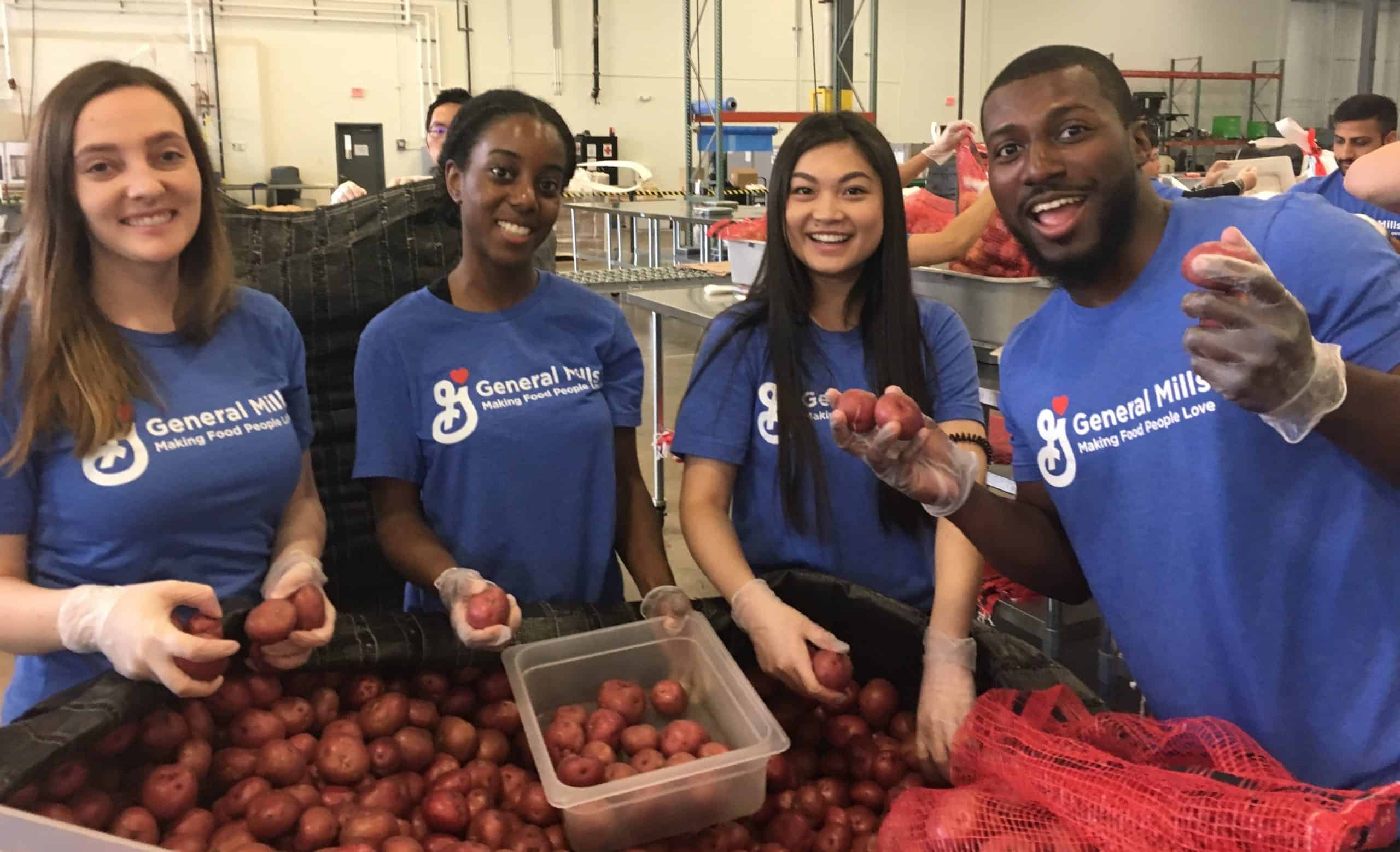General Mills Digs Into Greenhouse Gas Reduction Efforts

To advance its efforts as a leader in sustainability, General Mills set a goal to reduce absolute greenhouse gas emissions across its full value chain by 28 percent by 2025. To achieve this, the global food company identified three key opportunity areas: implementing sustainable agricultural processes, streamlining production operations and optimizing the consumer experience.
First, the company is addressing sustainability at its roots. General Mills’ work to reduce emissions across their full value chain starts at the farm level. The company works with suppliers and farmers to implement practices like regenerative agriculture, dairy management and reforestation.
Second, it is optimizing production operations—processes like mixing, cooking, toasting, freezing and packaging—that generate the bulk of production-related greenhouse gas emissions. The supply chain team significantly reduced this impact by consolidating some production operations and reducing the average emissions intensity of electricity the company purchased.
Finally, it’s improving the customer experience. On the consumer end, activities like shopping, preparing, eating and disposing of food products also generate greenhouse gas emissions. General Mills’ portfolio has shifted to more products that do not require cooking or refrigeration, which cuts down on related consumption emissions. Recycling was also emphasized on pack.
“The biggest way General Mills can impact climate change is within our supply chain,” said General Mills Chief Supply Chain and Global Business Solutions Officer John Church. “By using our global scale, we work to create value and reduce our footprint for the benefit of consumers, supplier partners, communities and the planet.”
Understanding food waste in landfills creates greenhouse gas emissions, the food company provides philanthropic support to leading nonprofits that make it possible for food companies, grocers, restaurants, distributors, trucking companies and other organizations to donate surplus food so it can be distributed to people in need, while bettering the environment.
“Over the past year, our global investments in food recovery technology with our nonprofit partners have enabled the recovery and redistribution of more than 4 billion pounds of surplus food and our food donations enabled 29 million meals for food-insecure people around the world,” Church said.
“Manufacturers are taking meaningful steps to lead sustainability efforts across the nation,” said Laura Berkey-Ames, NAM’s director of energy and resources policy. “General Mills’ efforts are an excellent example of manufacturers putting sustainability plans into action that make an immediate difference in the lives and communities of their customers.”
